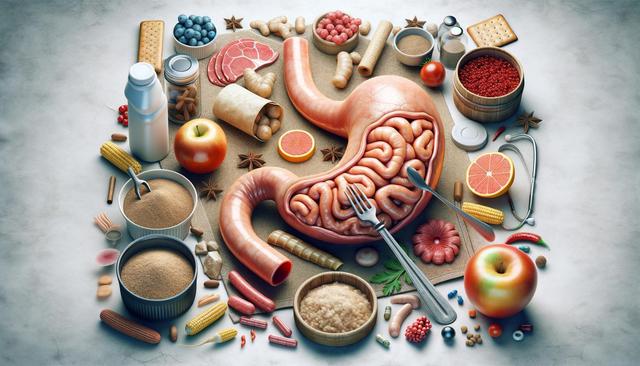Recognizing the Signs and Symptoms of Stomach Cancer
Stomach cancer can cause pain, loss of appetite, weight loss, nausea, and bloating. Early signs may be mild, like indigestion or heartburn. If symptoms persist, it’s crucial to consult a doctor for further evaluation and proper treatment

Understanding the Early Symptoms
Stomach cancer, also known as gastric cancer, often begins with subtle symptoms that may be mistaken for common digestive issues. This makes early detection challenging. People may experience mild discomfort such as indigestion, bloating after meals, or a feeling of fullness even after eating small amounts. These early symptoms can come and go, making it easy to overlook them. However, persistent or worsening symptoms should not be ignored.
Some common early signs include:
- Frequent heartburn or acid reflux
- Loss of appetite
- Mild nausea
- Unexplained fatigue
- Discomfort in the upper abdomen
Since these symptoms can resemble less serious conditions such as gastritis or ulcers, individuals are encouraged to monitor their frequency and intensity. If such symptoms persist for more than a few weeks, a healthcare provider should be consulted for further evaluation.
Progression and More Noticeable Symptoms
As stomach cancer advances, the symptoms become more pronounced and harder to ignore. At this stage, the disease may interfere significantly with digestion and overall health. One of the more concerning signs is unintentional weight loss, often accompanied by fatigue and weakness. Pain in the stomach area may become more constant and severe, especially after eating.
Other signs that may indicate the progression of the disease include:
- Difficulty swallowing (dysphagia)
- Vomiting, sometimes with blood
- Black or tarry stools, which may indicate internal bleeding
- Swelling or fluid buildup in the abdomen
- Feeling full quickly during meals
These symptoms often signal that the cancer has spread beyond the stomach lining. Timely medical intervention is essential at this stage to begin appropriate treatment and manage complications.
When to Seek Medical Attention
Recognizing when to seek medical help can make a significant difference in outcomes related to stomach cancer. While occasional digestive discomfort is common, consistent or worsening symptoms should not be ignored. Individuals over the age of 50, especially those with a family history of gastrointestinal cancers or known risk factors, should be particularly vigilant.
It is important to consult a doctor if you experience:
- Persistent stomach pain or discomfort
- Ongoing nausea or vomiting
- Sudden weight loss without dietary changes
- Chronic indigestion not relieved by over-the-counter medication
- Visible blood in vomit or stool
Diagnostic tools such as upper endoscopy, imaging scans, and biopsy can help confirm the presence of cancer and guide the course of treatment. Early diagnosis often leads to a broader range of treatment options and a more favorable outlook.
Risk Factors and Causes
Several factors can increase the risk of developing stomach cancer. Understanding these can help individuals make informed lifestyle choices and seek screening if they fall into higher-risk categories. One significant risk factor is infection with Helicobacter pylori, a common bacterium linked to chronic inflammation of the stomach lining and ulcers. Long-term inflammation can lead to cellular changes and, eventually, cancer.
Other risk factors include:
- Smoking and tobacco use
- Consuming a diet high in salty, smoked, or pickled foods
- Family history of stomach cancer
- Previous stomach surgery or chronic gastritis
- Exposure to certain chemicals or radiation
While not all individuals with these risk factors will develop stomach cancer, being aware of them can support preventive strategies. Regular check-ups and early interventions, particularly for those with a known history of stomach issues, can be beneficial.
Living With and Managing Stomach Cancer
Receiving a diagnosis of stomach cancer can be overwhelming, but many people find strength through a combination of medical treatment, lifestyle changes, and support. Treatment plans often include surgery, chemotherapy, radiation, or targeted therapies, depending on the stage and location of the cancer. Working closely with a medical team can help tailor the approach to an individual’s needs and overall health status.
In addition to medical treatment, patients can benefit from:
- Eating smaller, more frequent meals to reduce discomfort
- Focusing on nutrient-dense foods to maintain energy levels
- Joining support groups for emotional and mental wellbeing
- Staying active with gentle physical activity approved by a doctor
- Learning about available resources and counseling services
Living with stomach cancer also means being proactive about follow-up care and monitoring. Regular check-ins with healthcare providers help detect any recurrence early and ensure ongoing symptom management. With proper support, many individuals can maintain a good quality of life during and after treatment.
Conclusion: Staying Informed and Proactive
Stomach cancer can present with symptoms that are easy to overlook in the early stages. By understanding the signs, staying aware of risk factors, and seeking timely medical advice, individuals can play a key role in early detection and effective treatment. Whether you’re experiencing ongoing indigestion or more concerning symptoms like weight loss and stomach pain, it’s important to take action and consult a healthcare professional. Being informed and proactive can make a meaningful difference in managing both the risk and progression of stomach cancer.